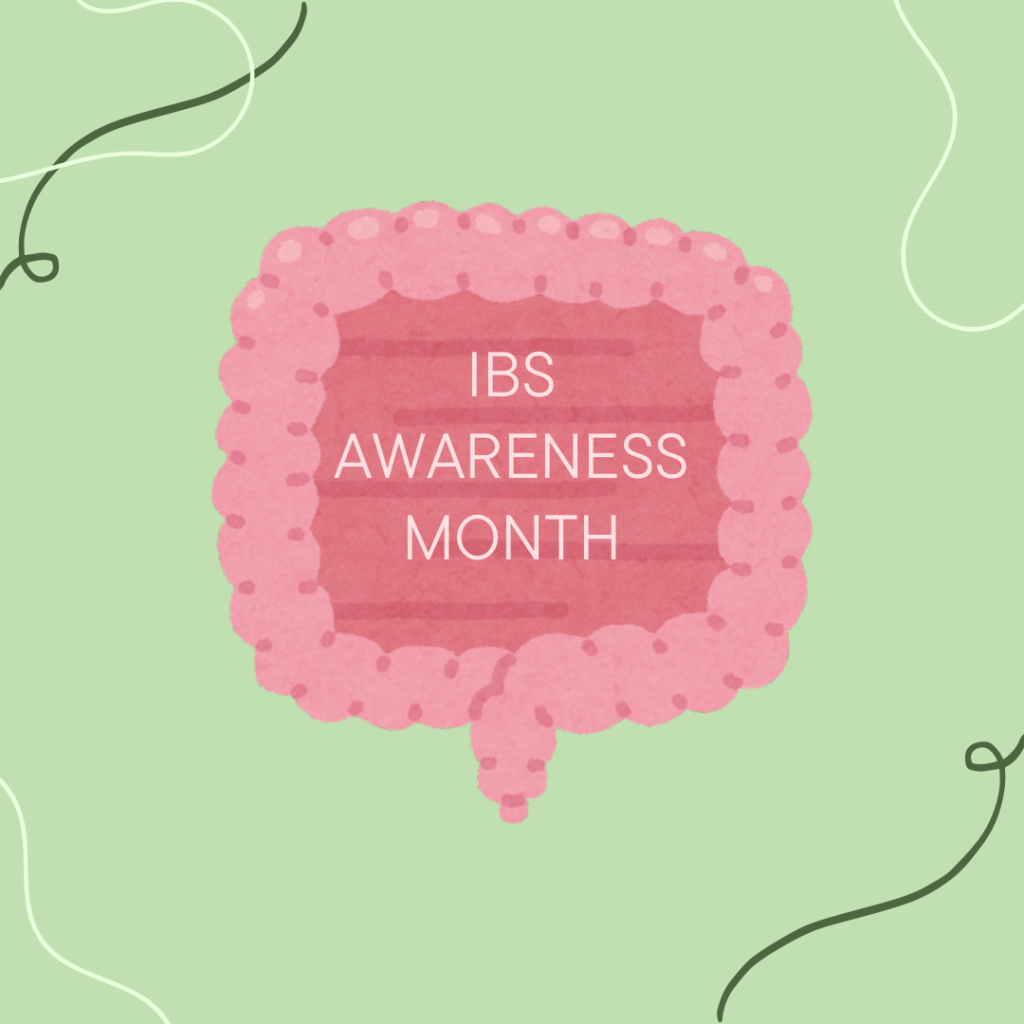Did you know that around 20% of Australians have IBS symptoms?
Irritable Bowel Syndrome is a collection of symptoms that occur due to irregular functions of the small or large intestine.

What do our intestines do?
Our small and large intestines are part of our gastrointestinal tract (also referred to as our gut) and they play an important role in digesting food and absorbing nutrients.
When food enters our mouth, it is broken into smaller pieces by the action of chewing and the production of saliva begins the digestive processes. From there, our food travels down our oesophagus and into the stomach where acid breaks the food down into its components. The food then travels into the small intestine followed by our large intestine where it then exits the body via the rectum and anus.
Our small intestine is responsible for:
- Further breakdown of our food using enzymes and bile from the liver, gallbladder and pancreas.
- Nutrients such as fats, proteins and carbohydrates are extracted from our food and absorbed into the blood stream via villi in the small intestines.
The remaining contents of our food than cannot be utilised by the small intestine travel to our large intestine (also known as our colon). The main function of our colon is to:
- Absorb water into our blood stream
- Facilitate the breakdown of fibre and starches by the bacteria living in our colon.
- This breakdown produces fatty acids which help to keep the cells within our colon healthy and allows for easy passage of food out of our bodies (seen as healthy and regular bowel movements).
What are common IBS symptoms?
- Abdominal pain and/or cramping
- Bloating
- Severe constipation or chronic diarrhoea or a combination of both
- Frequently passing wind
- Incomplete bowel motions
Why does it occur?
The cause of IBS is still unknown, however, there are a variety of factors which may contribute to worsening of symptoms, such as:
- Infection (such as gastroenteritis – where gut symptoms may persist long after the infection has gone)
- Diet (including food intolerances such as carbohydrates including lactose, fructose and sorbitol)
- Emotional or psychological stress
- Change of routine
- Poor gut microbiota
- Medication side effects
How can we promote good gut health?
Maintaining our gut health can help to lessen the symptoms of IBS and prevent major flare ups.
- Making sure you’re eating enough fibre (or supplemental fibre if dietary fibre isn’t sufficient)
- High fibre foods include: vegetables, beans, legumes, nuts, seeds and fruits.
- Monitor your diet for foods commonly associated with an increase in symptoms – you may then be able to avoid these foods or eat them less frequently to prevent major symptoms.
- Eat a variety of foods! Including multiple different fruits and vegetables in our meals helps to create a more diverse microbiome, improving our gut’s ability to break down foods and protect us from illness.
- Eating foods containing probiotics can add healthy bacteria to your gut microbiome. These foods include:
- Yogurt
- Kefir
- Sour cream
- Kimchi
- Miso
- Pickles
- Kombucha
- Stay hydrated! Drinking enough water encourages the breakdown of food in our gut and softens our stool to promote healthy bowel motions.
- Eat your meals slowly so your digestive system can process foods effectively and to reduce gas an bloating which may cause pain.
- Stay active! Regular cardio can stimulate your digestive muscles.
Find more of our health tips here.
Book an appointment with our naturopath, chiropractor or massage therapist here or call us on 9651 5559.
Sources:
Better Health Channel. 2021. Irritable bowel syndrome (IBS). https://www.betterhealth.vic.gov.au/health/conditionsandtreatments/irritable-bowel-syndrome-ibs#symptoms-of-ibs
Better Health Channel. 2023. Gut health. https://www.betterhealth.vic.gov.au/health/healthyliving/gut-health#how-to-improve-your-gut-health
Children’s Hospital of Philadelphia. 2022. Foods as medicine: Probiotic foods. https://www.chop.edu/health-resources/food-medicine-probiotic-foods
The Gut Foundation. IBS awareness month. https://gutfoundation.com.au/ibs-awareness-rafaellas-story/
